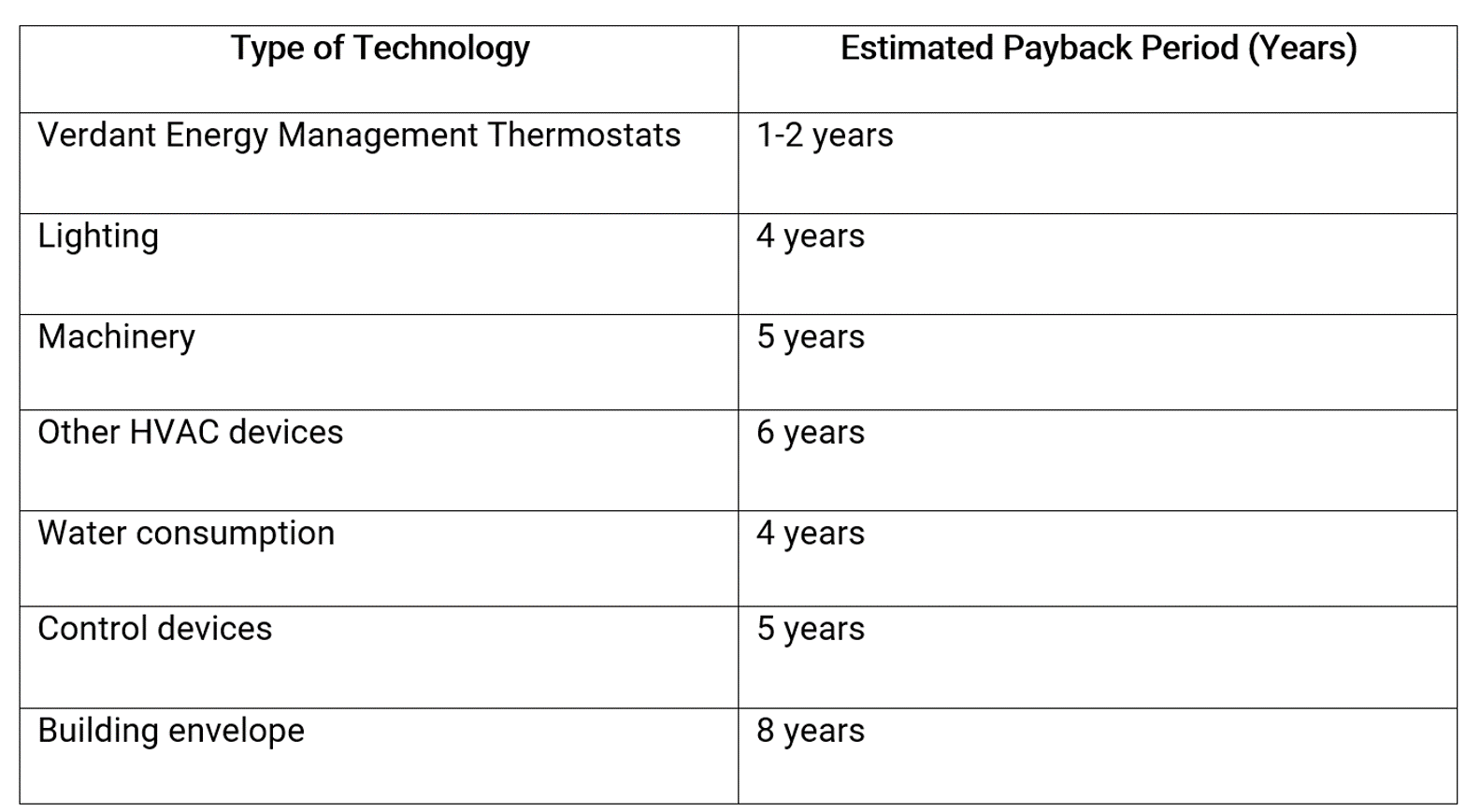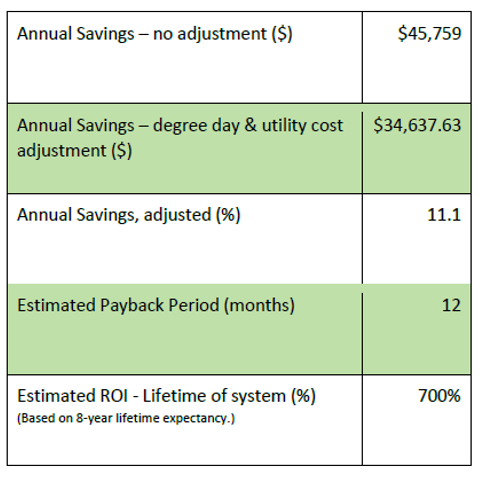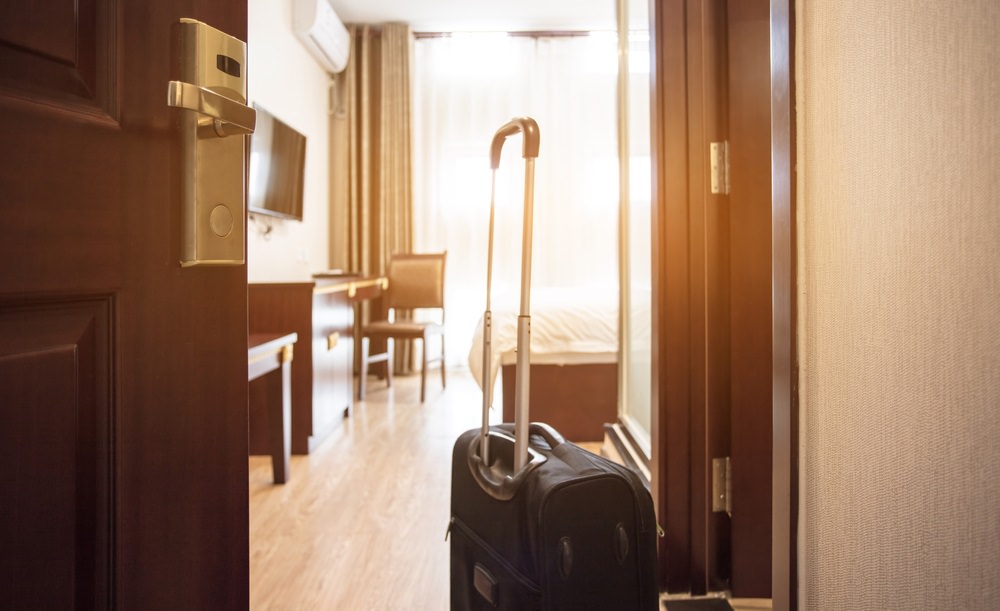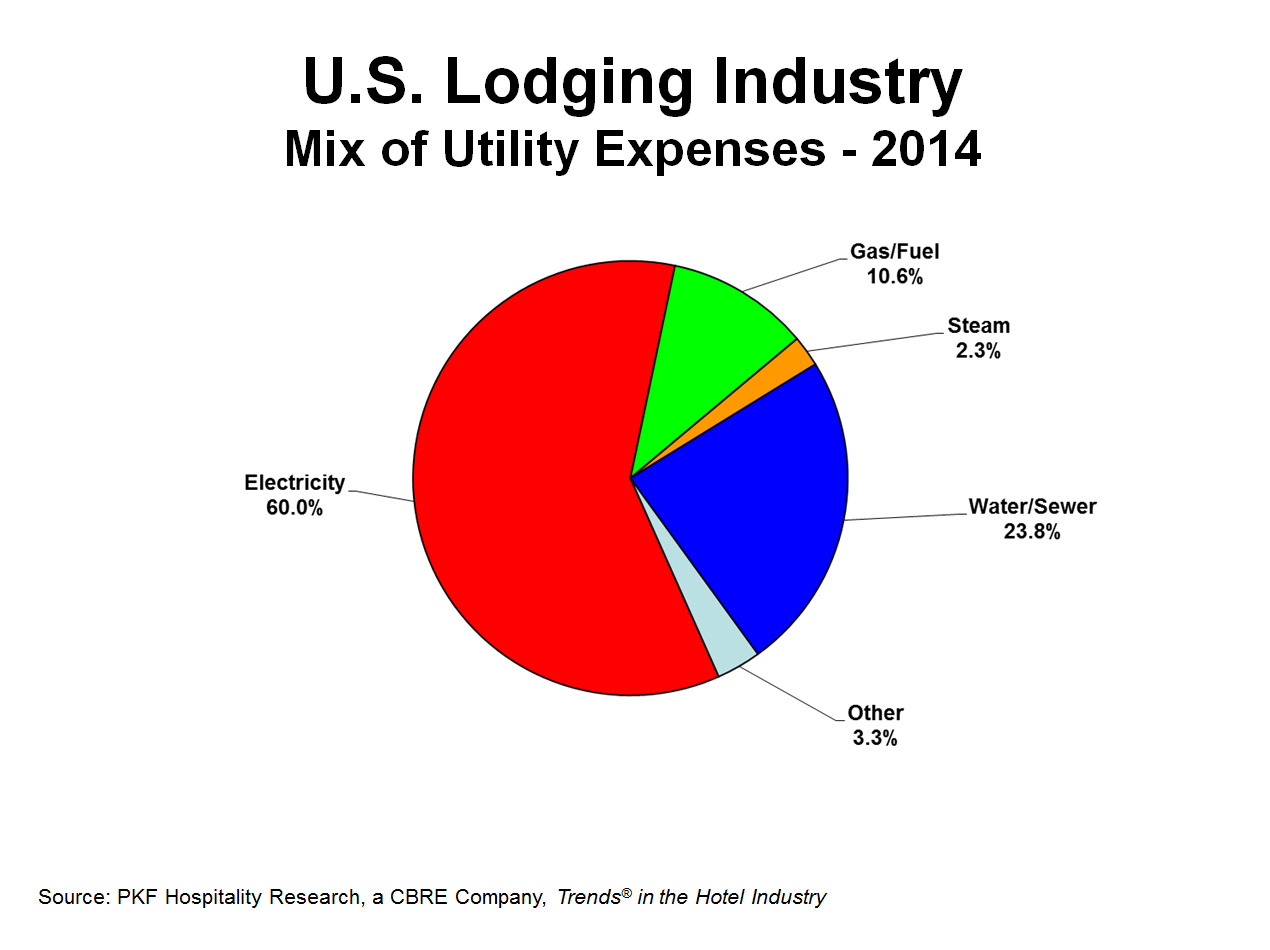When it comes to the hotel industry, there is no shortage of KPIs. Indeed, when evaluating the performance of their properties, hotel owners can look at everything from operational KPIs to financial KPIs to guest experience.
But there is one hotel KPI that really stands out as a performance metric because it factors in both operational costs and revenue, and that is GOPPAR (or gross operating profit per available room). And because GOPPAR factors in operational inputs, it highlights how energy consumption is a critical component of a hotel’s profitability.
What is GOPPAR?
GOPPAR is a hotel industry KPI that is designed to provide better insight into hotel performance than the more commonly used RevPar.
Essentially, RevPar (or revenue per available room) can be calculated in one of two ways: either “by multiplying a hotel’s average daily room rate (ADR) by its occupancy rate, [or] by dividing a hotel’s total room revenue by the total number of available rooms in the period being measured.” So while RevPar can be an excellent indication of a hotel’s occupancy-related revenue, it does not take into account operational costs that were incurred in generating that revenue. And when it comes to assessing the performance of a hotel property (or any business), revenue must be compared against costs.
GOPPAR, on the other hand, does take into account the operational costs incurred to generate the revenue of any given room (or the hotel as a whole). In a nutshell, GOPPAR is calculated by subtracting hotel expenses from the hotel’s total revenue, and dividing the difference by the number of available rooms. As Olivier Harnisch put it when writing for Hospitality Net:
A GOPPAR maximization strategy is more sophisticated [than a RevPar one] as it encompasses a broader scope of hotel success criteria. Since GOPPAR is calculated by dividing a property or company GOP by the number of room nights available, all factors impacting GOP are included. Therefore cost items are taken into account as well as revenue factors. For one, selling below variable cost is avoided as this will lead to an immediate GOPPAR decrease. A GOPPAR focus [also] considers the variable costs generated by an occupied room (such as housekeeping, laundry, energy …), additional profit induced by a room sale (F&B, laundry, telephone …), but also the cost of generating revenue, such as channel cost.
In other words, GOPPAR provides hotel owners with a more comprehensive picture of their property’s performance by looking not only at what their total sales are, but what the margins on those sales are once input costs are accounted for.
GOPPAR & Energy Management
In the hotel industry, electricity comprises 60 percent of total hotel utility expenditures. It’s not surprising, then, that hotel energy consumption has a considerable impact on GOPPAR. Indeed, the difference between having and not having an energy management system can often mean the difference between a hotel being in the red or in the black.
Fortunately for hotel owners, there are a variety of energy management technologies available that make it possible to not only monitor energy consumption with the utmost accuracy, but even adjust and optimize their energy consumption in response to real-time occupancy and consumption patterns.
Take the Verdant energy management system, for instance. It uses data from smart thermostats and occupancy sensors to monitor and respond to fluctuations in occupancy. More importantly, its built-in sophisticated machine learning algorithms continuously analyze historical thermodynamics, and local weather patterns to optimize energy consumption in real-time, all year round.
An Energy Savings Case Study
Indeed, smart energy management systems (such as Verdant EI) can reduce hotel energy costs by up to 20%, and generate some of the fastest payback periods in the industry (between 12-24 months).

The Holiday Inn Bridgeport Connecticut, for instance, more than recouped their investment in only 1 year. Specifically, the property saved over $45,000 in energy costs in the 12 months following the installation of Verdant EMS thermostats, and is expected to generate a 700% ROI over 8 years. Now consider how that affected their GOPPAR!

Most importantly, that 20% decrease in energy costs means significant improvement in the property’s GOPPAR. In other words, the less energy each room consumes, the higher the margins on each room booking (i.e. RevPar).
Energy Management, GOPPAR, and Hotel Resale Value
For REITs or any other hotel owner looking to sell their property, energy management technology can increase GOPPAR to the point that it significantly increases the property’s resale value.
Let’s consider the example of a REIT that installs Verdant’s smart IoT energy management thermostats in one of their typical limited-service hotels, with the intent of selling that property three years later.
In year one, the purchase of Verdant’s system will cost the ownership group approximately $22,000. This includes a cash rebate of approximately $50 per room from the hotel’s utility company. The savings after year one are about 20% of the overall electric bill, which translates to $14,500 annually.
In years two and three, the system continues to save energy at the same pace, creating additional savings of $14,500 per year. By the end of year 3, the system has saved ownership $43,200 in operating expenses, at a cost of $27,000 in capital expenditure (including 3 years of Verdant EI) – for a simple payback of 1.7 years.
Now recall, in this example, the REIT which owns this limited-service hotel is determined to sell this property after 3 years.
Since the $14,400 in annualized savings is a direct increase in annual EBITDA financial statements, we can multiply $14,400 by the EV-to-EBITDA multiplier (13.37 as of today), and see that Verdant’s IoT energy management system has created over $192,000 in additional property resale value. Add in the 3 years’ worth of actual electricity cost reductions, and Verdant’s energy management system has generated over $235,000 in additional value for this hotel in just 3 years time, while requiring a total investment of only $27,000.
Numbers that Matter
In any business, there’s a strong incentive to measure whatever you can — revenue, profits, costs, etc. The difference between a struggling and a successful business, however, is the difference between measuring what you can and measuring what matters.
In the case of GOPPAR, it’s a matter of measuring what really matters because you’re not just measuring how much revenue a hotel property has generated. You’re also measuring how much that revenue cost you and, as a result, how much of that revenue was profit.
Since energy consumption is one a hotel’s biggest overhead costs, anything that reduces that consumption (and its corollary costs) will improve a hotel’s GOPPAR. Of course, compromising on guest experience is rarely an option when looking for ways to increase profitability. With a smart energy management system, however, hotel owners can reduce superfluous energy consumption without compromising on guest experience, allowing them to increase GOPPAR, profits, and even their resale value.


